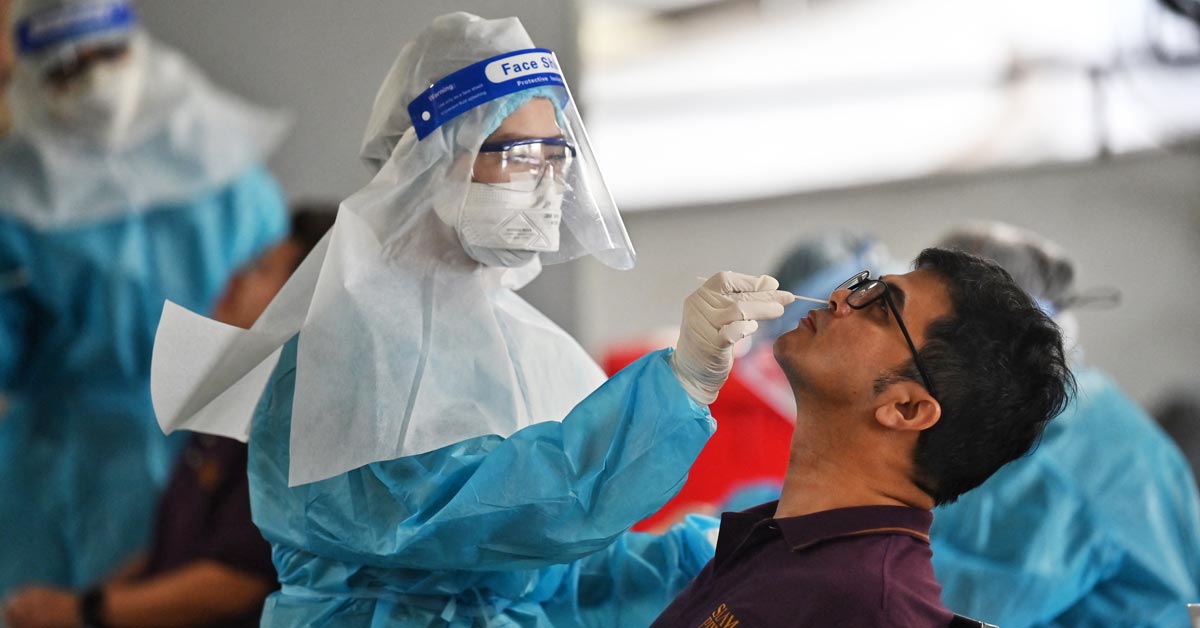Coronavirus is “still running rampant” worldwide and the failure to ensure poorer countries can access vaccines risks more deaths and the emergence of potentially dangerous new variants, the creator of the Oxford jab has warned.
Pleading for immediate action to enable wider distribution of jabs across the world, Prof Dame Sarah Gilbert said the “ever-evolving” virus “continues to circulate unchecked”, and, as a result, every country in the world now faces the threat of “further Sars-CoV-2 variants” this winter.
“No one is safe until we are all safe,” said Gilbert. Even countries with high levels of vaccine coverage, such as Britain, could still face “an alarming future”, she added.
“The virus has already adapted to increase transmission between humans, with the Alpha variant and then the Delta variant becoming dominant in many countries.”
“As the world grapples with the spread of the Delta variant, it is more crucial than ever that we do not forget the lives that could be saved by administering first and second doses to the most vulnerable populations worldwide and the opportunity that the global distribution of vaccine provides to protect all of us by reducing the selection of further Sars-CoV-2 variants.”
She added: “In the longer run, strategies for managing the risk of an ever-evolving Sars-CoV-2, including through the use of definitive medical countermeasures such as vaccination, will have to be adapted to the needs and experience of each country. For now, however, with the disease still running rampant, the priority must be to vaccinate as many people as possible and as quickly as possible.”
Greater efforts are now urgently required to make vaccines available “for the whole world”, the Oxford University professor of vaccinology said in a letter co-written with Dr Richard Hatchett, the chief executive of the Coalition for Epidemic Preparedness Innovations.
Their letter, published in Science Translational Medicine, said that by early September this year, 41.5 percent of the world’s population had received at least one dose of a COVID-19 vaccine, yet only 1.9 percent of people in low-income countries had.
Gilbert and Hatchett warned that offering booster jabs and vaccinating children - as is happening in the UK and other wealthy countries - would place “additional pressure on global vaccine supplies”.
They wrote: “In many high-income countries, more than 50 percent of the population have received two doses of vaccine. In high-income countries, the next questions are whether, or when, booster doses should be administered and whether to extend vaccination to children in the pursuit of herd immunity.”
“Such extensions of the use of COVID-19 vaccines by high-income countries will place additional pressure on global vaccine supplies and potentially further increase disparities between high-income countries and the rest of the world in terms of vaccine access.”
Ensuring underdeveloped countries can deliver COVID-19 vaccines has become one of “the most urgent challenges in the next phase of the COVID-19 pandemic,” they said.
“The proliferation of authorised COVID-19 vaccines and projected rapid growth in their aggregate supply has the potential to create an embarrassment of riches,” they added.
While supply to poorer countries is slowly picking up, the new challenge is ensuring they are able to distribute the jabs to millions safely and effectively once they arrive, they said. - The Guardian
